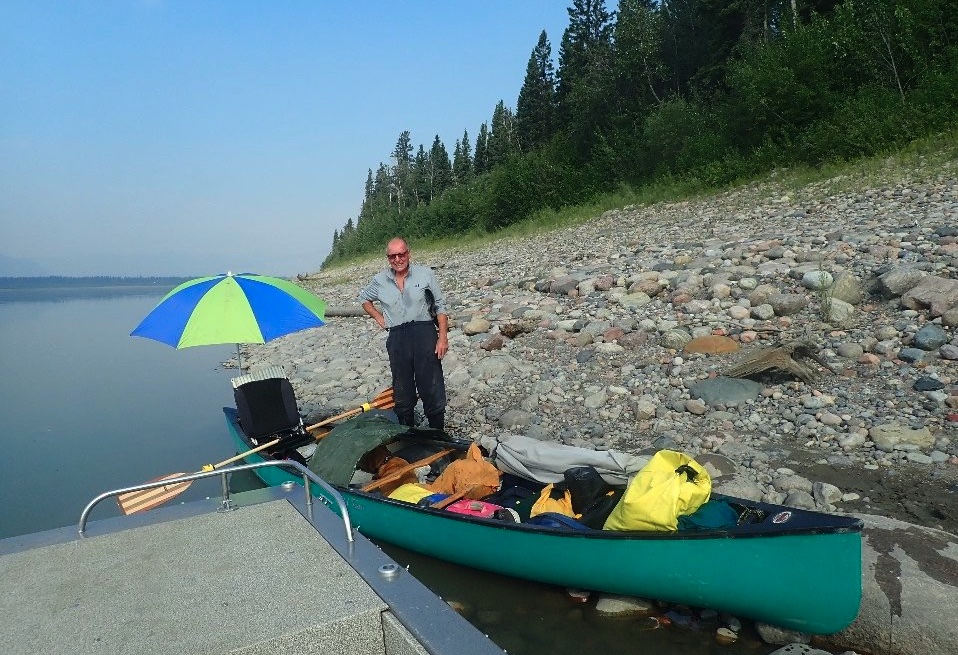Discussions underscore community concerns with Bend camping code
Published 5:30 pm Thursday, September 29, 2022

- Cars and campers park along Hunnell Road in Bend in September.
The Bend City Council invited business owners, public agencies, nonprofit service providers and people living on the streets to weigh in this week on the new draft of the city’s proposed camping code, which would ban unhoused people from camping on city property unless shelter space is not available.
Two roundtable discussions, one on Tuesday and one on Thursday, convened multiple government committees, eight representatives from public agencies, seven service providers, two people from the local business community and one person who is currently houseless.
Many businesses have been forced to hire security, improve lock systems, and, in some extreme cases, move to entirely new locations to keep business owners, employees and customers safe because of campers on city property nearby, said Daniel Elder of the Bend Central District Business Association and the Campfire Hotel.
Elder said his business, like many others in the city’s Central District, is attempting a balancing act. He has two priorities: running a profitable business and treating people with compassion. Elder said his business often has to choose between the two, and options for assistance are minimal.
“Outside of communicating to you, our hands feel tied, and it’s frustrating,” Elder said to the councilors Thursday.
Much of the public feedback at the roundtables, especially at Thursday’s session, was critical of the proposed code because it only tells people what they can’t do instead of offering solutions for what people can do.
Additional concerns included how the code would be enforced and how the success of the code would be measured after its implementation. Enforcement concerns largely revolved around the time component of the code. In locations where camping is allowed, people are required to move every day at 8 a.m. and cannot return until evening.
The City Council has been discussing how to regulate when, where and how people can camp on city property for several weeks. But Councilor Mo Mitchell wants to extend the public input process further to ensure the code is created and applied fairly and equitably while bringing in larger conversations of poverty, trauma and suffering.
“If we don’t have a resourced plan to support the community, then the code will likely not be effective,” Mitchell told The Bulletin Thursday.
Mitchell wasn’t the only one interested in more opportunities for feedback. Katy Brooks, the CEO of the Bend Chamber of Commerce, said at the meeting Thursday she wants to ensure the city will measure how well the code works once it’s implemented. She said she didn’t want to be sitting in the same spot five years later because the code didn’t work the first time.
Linda Long, a Starbucks employee who camps on China Hat Road, said she was impressed with the council’s level of inclusion, but she hopes for more opportunities for those who are houseless to give their thoughts on the code.
“I think they already realize — to a large extent, based on the feedback — that there’s some serious issues around trying to understand the logistics and concerns of the houseless,” Long said.
For many public agencies like the Oregon Parks and Recreation Department, Bend Park & Recreation District and the Oregon Department of Transportation, the proposed code won’t change their day-to-day operations.
Jim Scholtes from ODOT said one of his primary concerns is that people camping near roadways, especially high-speed highways, are not safe.
“I spent Wednesday night out on the parkway on a person that was struck. That person was houseless,” Scholtes said at the meeting.
He said the majority of cases when a pedestrian is struck or impacted by a vehicle involve people who are houseless being hit.
“We need to figure that out. I don’t ever want to go to another one of those again,” Scholtes said.
City councilors are scheduled to conduct a work session before their regular meeting next Wednesday, during which they’ll discuss what they learned from the roundtable meetings and possible next steps. Public hearings will be held in the coming weeks before councilors vote to adopt the code in November.
Editor’s note: This article has been updated. The original version misstated the circumstances under which camping would be banned. The Bulletin regrets the error.








